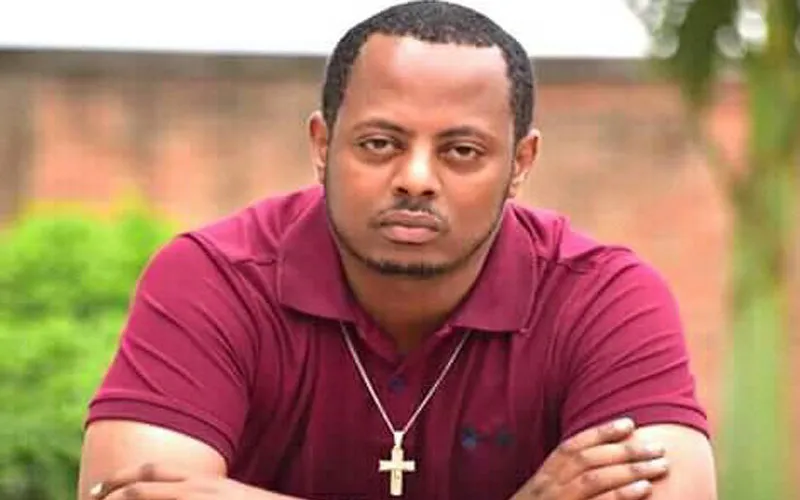He was arrested in 2014 after he had just released “The meaning of death”, which challenged the official narrative of the genocide.
In 2015, Mihigo was convicted of complicity to overthrow the Rwandan government of President Paul Kagame and handed a10-year prison sentence. Three years later, President Kagame pardoned him on condition that he needed judicial permission to leave the country.
He had been detained Thursday, February 13, accused by the Rwandan police of attempting to leave the country illegally, to join rebel groups in neighboring Burundi that are fighting against Rwanda.
Police explained that his attempt to leave the country without judicial permission had nullified the Presidential pardon he had received in 2018.
RIB also accused Mihigo, an ethnic Tutsi, of attempting to bribe people who had seen him “carrying a heavy bag.”
(Story continues below)
“I was there, I saw him. Villagers who stopped him said he was trying to cross to Burundi using illegal roads. From here to the border it’s less than five minutes’ walk,” a resident of south-western Nyaruguru district of Rwanda who did not want to be named has been quoted as telling BBC Great Lakes in reference to the late Mihigo.
Some members of the family of Mihigo and his lawyer had visited him in police custody Friday, February 14, The New Times of Rwanda has reported.
In country where the government is often accused of zeroing in on perceived critics, RIB’s account of suicide as the cause of Mihigo’s death is expected to be received with skepticism.
Some of his fans have taken to social media, seeking answers from the government of Rwanda about Mihigo’s death.
The Central Africa Director at Human Rights Watch (HRW), Lewis Mudge whose area of operation covers Rwanda, Burundi, the Central African Republic (CAR), Cameroon, and the Democratic Republic of Congo (DRC) has called for an investigation to determine the cause of Mihigo’s death.
He “could have been ill-treated or killed in custody,” the HRW official has been quoted as saying, referencing Mihigo.
“Too often, sensitive cases in Rwanda result in mysterious deaths or disappearances,” Mudge has been quoted as saying following the death of Mihigo.
Fr. Don Bosco Onyalla is ACI Africa’s founding Editor-in-Chief. He was formed in the Congregation of the Holy Ghost Fathers (Spiritans), and later incardinated in Rumbek Diocese, South Sudan. He has a PhD in Media Studies from Daystar University in Kenya, and a Master’s degree in Organizational Communication from Marist College, New York, USA.








